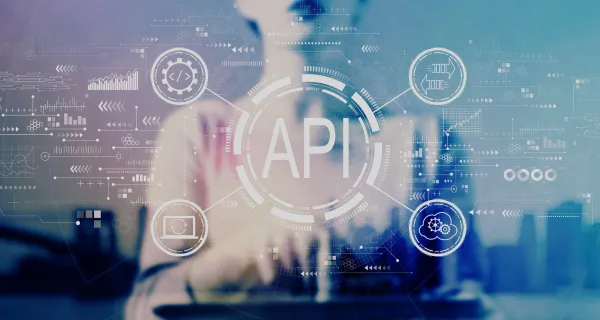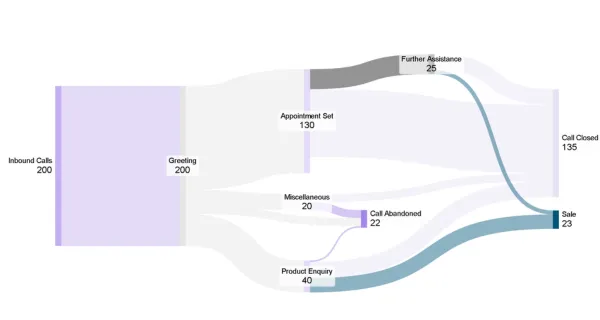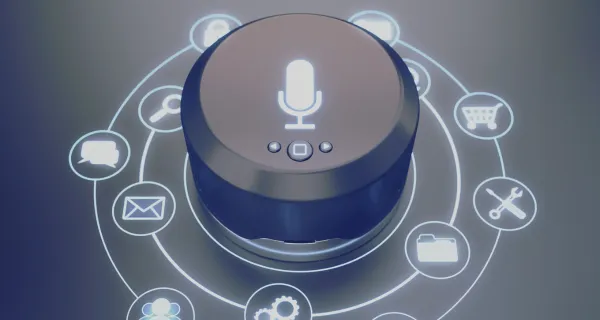How we do it
We provide conversational AI solutions that work smoothly with your existing business systems. Our architecture—built on telephony, AI voice capabilities, knowledge management, API integrations, analytics, and low-code automation—enables businesses to deliver quality customer experiences consistently and for us to deploy them very quickly.

Telephony and Messaging Integration
Our platform features a comprehensive telephony and messaging system supporting voice calls, SMS, and messaging services including the like of WhatsApp and Slack.
This enables businesses to connect with customers through their preferred communication channels.
The integration handles both inbound and outbound communications, facilitating timely engagement and better customer experiences.
AI-Powered Voice Interactions
We integrate conversational AI technology to improve voice-based exchanges. This system interprets spoken language, enabling fluid conversations between users and AI agents.
Using dedicated API connections to low latency voice processing services, it provides prompt responses and coherent user experiences, making interactions more contextual and effective.


Human-Like Speech for Natural Conversations
To enhance the clarity and expressiveness of AI-generated speech, our solution incorporates industry-leading text-to-speech capabilities.
This technology delivers highly natural and human-like voice synthesis,
supporting multiple languages and voice styles to cater to diverse customer
needs.
Whether engaging in casual conversation or delivering complex responses, the AI agent ensures clarity, warmth, and professionalism in every interaction.
Knowledge-Driven Interactions
A key component of our platform a dynamic knowledge base, which aggregates and structures information from various sources, including FAQs, product documentation, websites and customer records. This allows AI agents to retrieve relevant details quickly and accurately when responding to customer inquiries. Additionally, these knowledge bases can be programmed to query dynamic data sources, such as CRM systems or proprietary databases, ensuring that the AI agent delivers real-time, personalized responses.
By leveraging this structured knowledge, businesses can provide their customers with instant, precise answers while ensuring consistency in communication across all interactions.


API-Enabled Integration with Business Systems
Our platform connects with external business systems for real-time data access and management. When receiving a call, the AI agent can access the caller's customer profile, enabling personalized service. Integrations include:
CRM Systems – Access and update customer profiles in systems like Oracle Fusion Cloud or Microsoft Dynamics 365
Order/Inventory Management – Provide updates on order status and product availability
Billing/Payment Platforms – Handle invoice questions and process payments
Scheduling Tools – Manage appointments and deliver reminders
Call Analysis for Continuous Improvement
To ensure ongoing enhancement of AI agent performance, our platform incorporates powerful call analysis tools.
AI-Based Call Evaluation – A native assessment model utilizes a large language model (LLM) as a judge to evaluate conversation effectiveness. This system provides structured feedback on AI-generated responses, helping refine conversation flow and accuracy.
External Call Analysis Tools track interaction patterns, assess customer sentiment, and generate insights for optimization. These tools offer a detailed view of caller journeys, highlighting areas for improvement and identifying opportunities for better engagement.
By continuously monitoring and refining AI interactions, businesses can ensure high-quality, reliable customer service.


Workflow Automation with Low-Code/No-Code Integration
Our low-code / no-code automation tools connect AI agents with third-party applications, enabling:
CRM Data Synchronization – Syncing customer data between systems like Oracle Fusion Cloud and Microsoft Dynamics
Multi-Channel Marketing – Triggering email follow-ups in Mailchimp or creating customer segments in HubSpot
Support Ticket Management – Generating cases in Zendesk or follow-up tasks in Salesforce Service Cloud
Process Automation – Sending conversation summaries to Slack or creating project tasks in Asana
Read Our Blog Posts

Scottish Startup scotsphere AI Brings Voice Automation to Small Businesses
A new wave of voice AI is making it easier for small businesses to stay responsive — and one Scottish startup is putting UK SMEs at the centre of that transformation.
Missed calls are a quiet but costly issue for small businesses. Whether it's a solo solicitor in court, a stylist mid-appointment, or a tradesperson up a ladder, the inability to answer a ringing phone often means a missed lead, a frustrated client, or a lost booking.
For many, it’s the hidden cost of growth.
“Small business owners aren't ignoring their phones because they don't care — they're missing calls because they're busy doing the job,” says Antony Slack, founder of scotsphere AI, a Scottish tech company developing conversational voice assistants for SMEs. “But customers don’t wait. If you don’t answer, they move on.”
It’s a problem Slack and his team are solving with a new kind of voice-first automation — one that feels less like an answering service and more like an extension of the business itself.
From Voicemail to Voice Agent
At the core of scotsphere AI is a voice assistant built to understand, respond to, and resolve customer queries — over the phone, in real time.
But unlike traditional IVR or chatbot systems, scotsphere’s agents are designed to be adaptive and contextual. They can:
Answer product questions
Book appointments
Route urgent calls
Log enquiries directly to calendars, CRMs, or booking platforms
What makes the system distinct, Slack says, is its agentic AI foundation — technology that not only understands what’s being said, but also takes appropriate action based on business rules and integrations.
“We’re not trying to replace a person with a script,” he says. “We’re giving business owners back the time they’re losing to missed calls and admin, with something that acts like a team member — not just a switchboard.”
Meeting UK Businesses Where They Are
While similar services like Goodcall have found traction in the US, scotsphere AI is designed from the ground up with UK service businesses in mind.
“We understand how different the customer dynamic is in the UK,” Slack explains. “There’s a greater emphasis on relationships, tone, and clarity. You can’t have an AI that feels robotic or overly formal — it has to feel natural, trustworthy, and local.”
That’s why the platform is being developed in close collaboration with early adopters across legal, wellness, and trades sectors. Through an Early Access Programme, scotsphere is refining its voice models, workflows, and integration depth by working with real businesses in real-time.
Technology Without the Overhead
Ease of use is another priority. Rather than requiring complex setup or specialist knowledge, scotsphere AI is designed to work “out of the box” — while still offering deeper customisation for those who need it.
It connects with common tools like Google Calendar, Microsoft 365, Clio, Fresha, and others. Businesses can define which types of calls should be booked, redirected, or logged for follow-up.
And unlike call centres or outsourced receptionists, scotsphere offers round-the-clock coverage without ongoing staff costs.
A Voice That Builds Trust
Still, Slack is careful not to overpromise.
“AI should be helpful, not hype,” he says. “Our goal isn’t to replace people — it’s to help small teams do more, without compromising the quality of their customer experience.”
As the platform expands, the focus will remain on service businesses that rely heavily on inbound calls — the kind of organisations where missed calls often mean missed revenue.
In that respect, voice AI isn’t a futuristic add-on. It’s a timely response to a real-world problem.
scotsphere AI is currently inviting businesses to join its Early Access Programme. More information is available at www.scotsphere.ai.

Navigation
Contact Us
© 2025 scotsphere.ai All Rights Reserved